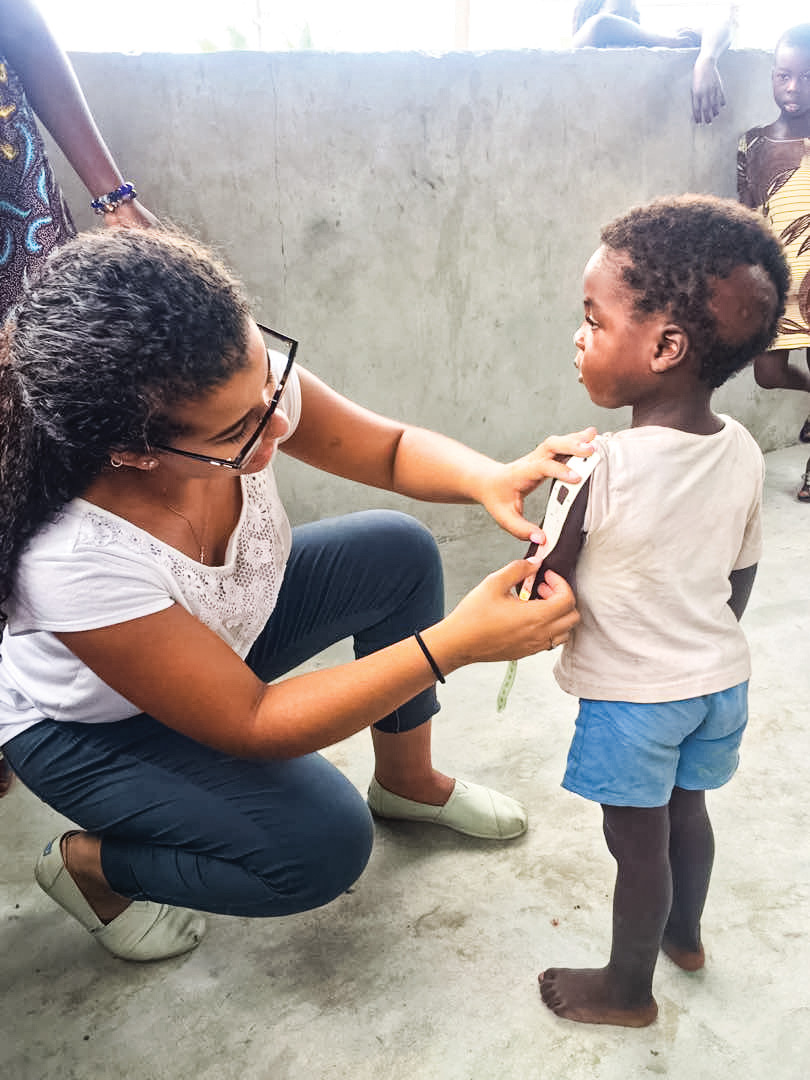Battling ‘hidden hunger’ in mothers and children
Gabrielle Plucknette-DeVito
Brenda Abu, a post-doctoral fellow at RIT, is trying to reduce anemia in Ghana. She and three undergraduate students visited Ghana last summer to begin researching solutions.
As a graduate student in Ghana, Brenda Abu witnessed the toll of anemia, a condition that afflicts as many as 70 percent of the children and 45 percent of the women in that West African nation.
Her experiences convinced Abu to pursue a career researching nutrition, specifically looking for ways to reduce anemia in mothers and their children.
Now as a post-doctoral fellow at RIT, she has developed a program that capitalizes on the university’s goal of offering more global and experiential learning experience for its undergraduates.
It’s the first global research experience to be offered by RIT’s Wegmans School of Health and Nutrition, and there are plans to apply what the students learned back in Ghana and elsewhere in the world, including Rochester.
Anemia is sometimes called the “hidden hunger.” It creeps up slowly, causing severe fatigue. But it can also affect the heart, cause pregnancy complications and stunt children’s physical and mental development. Unchecked, it causes chronic illness, even death.
The causes vary: poor diet, genetics, malaria and diarrheal infections contracted from pathogens in dirty water—all factors that deplete the body of necessary nutrients, especially iron, and weaken the immune system.
What Abu is trying to do is better understand all the factors—such as food choices, social programs, health and sanitation—that contribute to anemia and find ways to make them less of a factor and reduce the likelihood of the condition.
 Brenda Abu Olivia Garror, a biomedical sciences major from Bainbridge, N.Y., assesses a child for malnutrition in a refugee camp in Ghana.
Brenda Abu Olivia Garror, a biomedical sciences major from Bainbridge, N.Y., assesses a child for malnutrition in a refugee camp in Ghana.Using a grant from RIT’s Paul and Francena Miller Chair in support of International Experiential Learning, Abu and her student team crisscrossed the country, interviewing agency and program staff who work with the Ghanaian community to resolve anemia, as well as leaders of governmental and non-governmental programs. They spent time with a mother whose child suffers from anemia and met with a midwife who is respected and influential in her community. Abu took her team to open-air markets to see what food is sold and how it is handled and stored in the heat. They traveled to a remote village built on stilts over a lake and to three refugee camps.
Abu envisions a holistic approach that includes public health programs and other sectors that aim to prevent the problem through different means—fortified foods, agricultural projects, financial programs to help families improve their income and access to clean water and sanitation services. Each contributes to building resilience against undernourishment and disease.
She says sharing nutrition research with the people who need it is her calling.
“It’s not enough to publish a paper,” Abu said. “I think researchers have so much more to do.”









